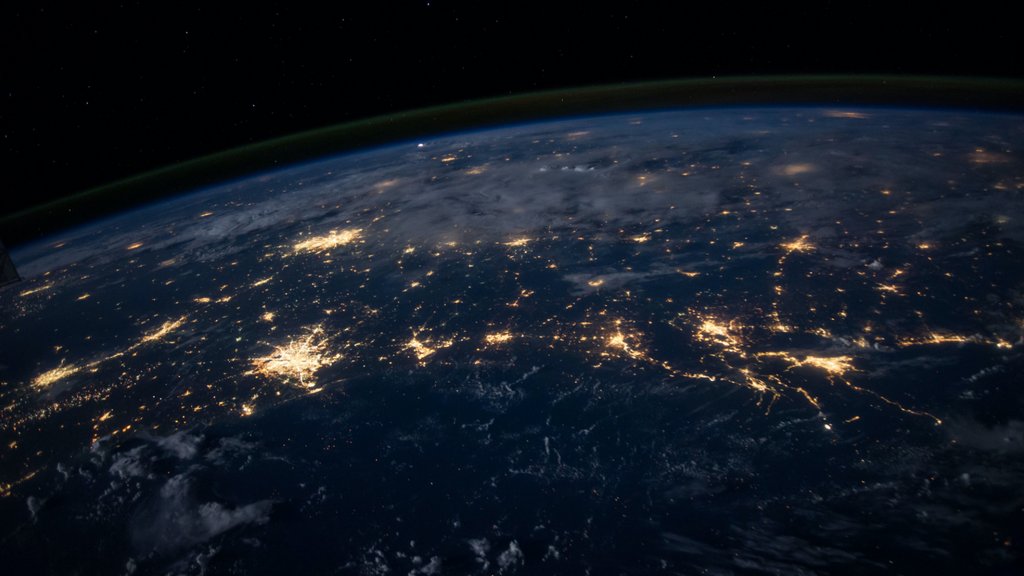Opinions - 11.03.2022 - 00:00
The future of energy
The crisis in the Ukraine, with Russian forces threatening Ukranian nuclear plants and the drastic change in oil and gas prices has people wondering what effect this could have on the energy transition. We spoke with Rolf Wüstenhagen, Professor of Management of Renewable Energies at HSG, about this topic.

Professor Wüstenhagen, how would you have summarized the state of the energy transition before the current crisis in Ukraine?
Rolf Wüstenhagen: In some countries, there was a growing momentum about the energy transition, for example in Germany and Austria, where the current coalition governments want to significantly accelerate the expansion of renewable energies in the face of climate change. Mixed signals came from other countries – Switzerland, for example, saw dynamic growth in solar energy and electric mobility, and yet some politicians felt compelled to again question the Energy Strategy 2050 approved by the people five years ago.
Recently, the prices of oil and gas have risen sharply as a result of the Ukraine crisis. Could this lead to more investment in the production of fossil fuels again?
The current price volatility is leading to very different developments. On the one hand, high oil and gas prices are an incentive to save energy and invest in renewable energies; on the other hand, at first glance, they also appear to make investments in fossil energy sources more attractive. In resource-rich regions such as the Canadian province of Alberta, some people are hopeful that previous shifts away from oil and gas industry initiated by climate policy could now be reversed. But this is a very short-sighted perspective – climate change is a long-term trend, and if we cause even more emissions now, it will cost us dearly.
Are there signs in other countries that they now want to accelerate the energy transition?
Such signs can be seen above all in countries where good progress had already been made with the energy transition. Denmark already gets over 40% of its electricity from wind power and has transformed its former national oil and gas company into a developer of offshore wind farms. For such countries, the crisis is a confirmation to move forward on the path they have chosen. In Germany, Finance Minister Christian Lindner (FDP) now speaks of renewable energy as "freedom energy." It has been recognized that it is not sustainable to be heavily dependent on a foreign supplier of fossil energy – neither environmentally, nor financially, nor in terms of security.
How quickly could the West become independent of Russia through renewable energy sources?
That depends on how much money one is willing to invest and whether one also resorts to unconventional measures. The technologies are available, solar and wind energy are now among the cheapest forms of power generation, and in transport, too, we no longer have to wait for a miracle to become independent of oil, as there is a wide variety of electric car models to choose from. At the UN climate conference in Glasgow (COP26), numerous countries and companies committed themselves to phasing out the internal combustion engine, and in Switzerland a majority of voters have decided to ban oil-fired heating systems in some cantons. The current situation shows that such steps not only reflect a climate policy necessity, but were also wise decisions from a security and financial policy perspective. Today, however, we have to ask ourselves whether the decisions taken so far had the right time horizon, or whether we should not move ahead with the transition more quickly.
What course would have to be set so that countries are not tempted to cover their energy needs with fossil fuels from a non-Russian supplier?
I think two things are needed. First, it is now up to every nation to look closely at their energy policy, to amend it and address both short- and long-term goals. It is understandable that part of the political attention at the moment is focused on how to solve short-term supply bottlenecks triggered by a heavy dependence on Russia. However, this fire-fighting exercise would have to be consistently combined with an investment initiative in the areas of energy efficiency and renewable energies in order to get to the root of the problem. Second, climate policy must be pursued consistently so that investors make their decisions based on price signals that reflect the scarce absorptive capacity of our atmosphere for CO2.
Could the Ukraine crisis become a turning point for the transition to renewable energy, similar to the effect the Fukushima accident had on public attitudes?
There are indeed parallels. Before the 2011 meltdown in Fukushima, there had been no major accident at a nuclear power plant for 25 years, and efforts to promote an energy transition gradually lost momentum. Then, from one day to the next, there was suddenly a completely different awareness about energy issues, and landmark political decisions were made. As for today’s situation, our great dependence on foreign oil and gas was under the radar screen of public attention for a long time. Hardly anyone knew that Switzerland's energy supply is 72% dependent on foreign countries. The average car driver didn't give much thought to where the gasoline at the gas station came from, and those who heated their homes with natural gas would not have imagined that they might be helping to finance a war at the other end of the pipeline.
Image: Unsplash / nasa
More articles from the same category
This could also be of interest to you
Discover our special topics
















